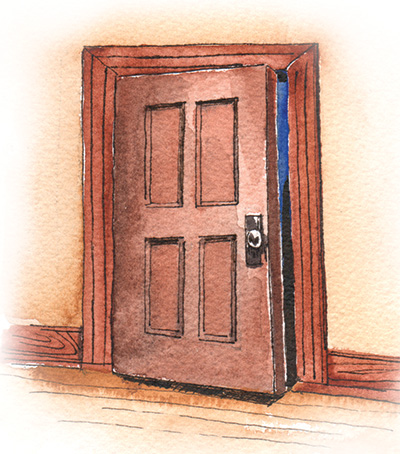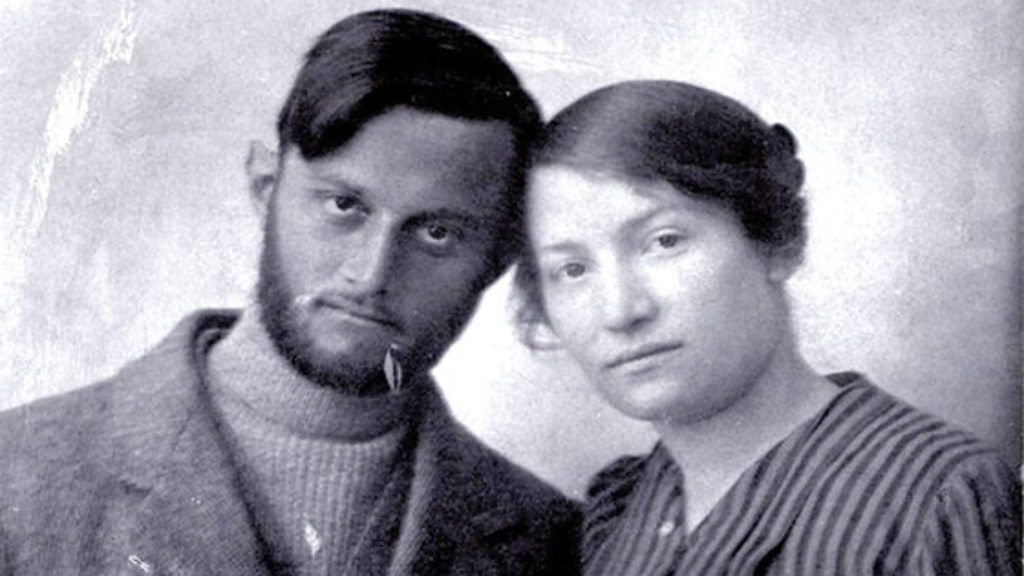Books vs. Children
In the recently published second volume of his biography of Saul Bellow, Zachary Leader quotes Bellow’s agent Harriet Wasserman’s description of an excruciating moment at a Nobel Prize after-party. At the end of the meal, Bellow’s Swedish publisher rose to toast him, then Daniel, Bellow’s 12-year-old son, got up: “I’d just like to say my father has been so busy, but he still had time for me. Thanks, Pop.” Then his oldest son, Gregory, rose to speak:
“My young brother has given me the courage to say something I’ve always wanted to say.” . . . Greg was standing there, his walrus mustache trembling slightly. “I never thought you loved me, and I never understood what the creative process was. You were behind a closed door all the time, writing, listening to Mozart.” He was looking straight at his father. “I was young. I didn’t know what you were doing behind the closed door.” . . . All the European publishers, all of them men, were sitting very stiff and upright. . . . Looks of total shock—horror almost—on their faces. . . . “And then . . .” Greg was barely controlling himself. “. . . I witnessed the birth of my own child and I understood what the creative process was, and I understood then that you really did love me.”
A stunned silence followed; Bellow walked over to his middle child, Adam, shook his hand and said, “Thanks, kid, for not saying anything,” and left.
Recently, Rivka Galchen, a novelist and new mother, has cast a skeptical eye on the trauma of the writer-parent’s closed door.
There is a certain consistency of complaint . . . the child comes to show something to the writer-parent . . . during the daytime hours, and the writer-parent says to the child, I can’t right now, I’m working. There are also often descriptions of the looming, hostile, uncompromising door of the home office. Apparently it is very troubling for children to see their parents working, at least doing the kind of work that does not make itself visibly obvious.

Her skepticism is twofold: First, she doubts that this happens as often as it is described in the memoirs of the children of authors, and, second, she wonders what the big deal is. After all, most parents work, and why should making up stories in the other room be any more mysterious or troubling than office work?
These are reasonable questions, but Galchen knows that there is something deeper in the rivalry between books and children, something that Gregory Bellow was getting at in the agitated talk of creativity, birth, and babies with which he toasted his father. In fact, it is one of the things that Galchen’s book Little Labors is about.
Montaigne says a terrible thing that puts the issue starkly. In his essay about the affection of fathers for their children, he wonders whether a great author wouldn’t prefer to “bury his children . . . than the fruits of his mind.” To be fair to Montaigne, this was probably a macabre and unconscious consolation for the fact that all but one of his children died in infancy. On the other hand, he did have a theory: Since we love our children as second selves, loving them because we have produced them, we—or at least the writers and artists among us—should remember that we also produce something else from our selves, which are “products of a part more noble than the body and . . . more purely our own.”
In this act of generation we are both mother and father; these “children” cost us dearer and, if they are any good, bring us more honour. In the case of our other children their good qualities belong much more to them than to us: we have only a very slight share in them; but in the case of these, all their grace, worth and beauty belong to us.
Montaigne’s mistake—and, to some extent, that of the pained young Gregory Bellow trying to understand his father—is to equate artistic creation with biological procreation, clever artifacts with human beings. Sitting behind a closed door writing words is not really like giving birth; to think so risks a kind of idolatry. One ascribes infinite value to a merely human thing and ends up sacrificing a human—who really does have infinite value—to that thing.
In this case Moloch is the father’s book. Then again, maybe this is all a little overwrought. After all, as Rivka Galchen implicitly points out, one can also harm or ignore one’s children in the pursuit of less romantic professions. And how bad is a closed door anyway?
Still, there is something troubling about writers and their children, and it probably won’t do to just point out that other occupations can also skew one’s priorities. Nor is it sufficient to note that the rivalry between books and children is a result of the distorting ideology of the modern artist, which began to hit its humanist stride in Montaigne’s time, though that is partly true.
In a comment on a verse in Proverbs, the Vilna Gaon writes that a true hero is someone who studies Torah day and night, and when his family cries out “‘[b]ring us something to support and sustain us’… he pays no attention at all to them nor heeds their voice . . . for he has denied all love except to that of the Lord and His Torah.” Presumably, a closed study door would come in handy here. The Gaon’s remark is idiosyncratic and extreme, but one sees this set of priorities in less extreme form elsewhere in the rabbinic tradition and in religions more generally.
All-consuming intellectual passions tend to come at the price of children, and artists and scholars have too often reveled in their heroic choice to press on with the task. Yeats famously says that
The intellect of man is forced to choose
Perfection of the life, or of the work
And if it take the second must refuse
A heavenly mansion, raging in the dark.
But neither lives nor works can be perfect, and the thought that they could be is at least part of the problem.
There is a nice story about the Vilna Gaon’s great Hasidic contemporary Rabbi Schneur Zalman of Liadi, his son, Rabbi Dov Ber, and his grandchild. Rabbi Dov Ber and his family were living with his father on the first floor of a two-story house. One evening while Dov Ber was studying, one of his children fell out of the crib. Oblivious, he continued to study as his child cried. Rabbi Schneur Zalman was also studying, but he came down from the second floor, calmed his grandchild, and then went to speak with his son. He told him that one should never be so absorbed in thought that one cannot hear a child’s cry. In other words, next time leave the door open.
Suggested Reading

To Spy Out the Land
A palm tree over one grave and a fence around another—two new books explore the history and legacy of the Nili spy ring.
The Nation of Israel?
The case for an Israeli—not Jewish—republic.
Judaism’s Feminist Future
For Judith Hauptman, the Conservative push for women’s rights holds the key to its future--and the future of Judaism as a whole.
Letters, Winter 2021
Et Tu, Jewish Review?, The Akedah Conundrum, Crazy Rich Mizrachim?, Josephus’s Jonah, and More
Comments
You must log in to comment Log In